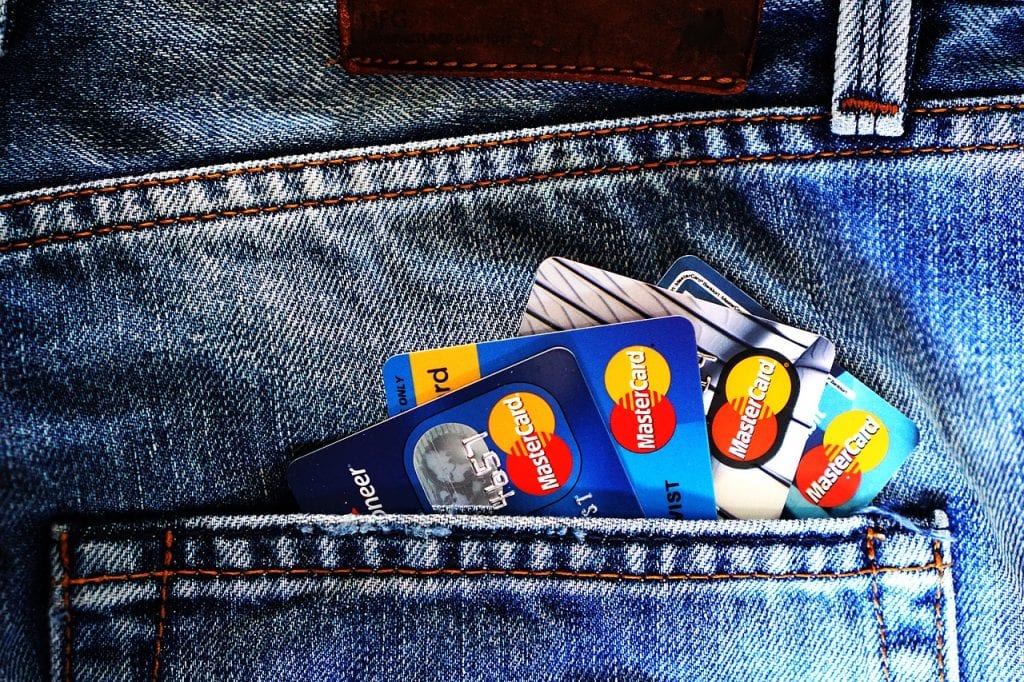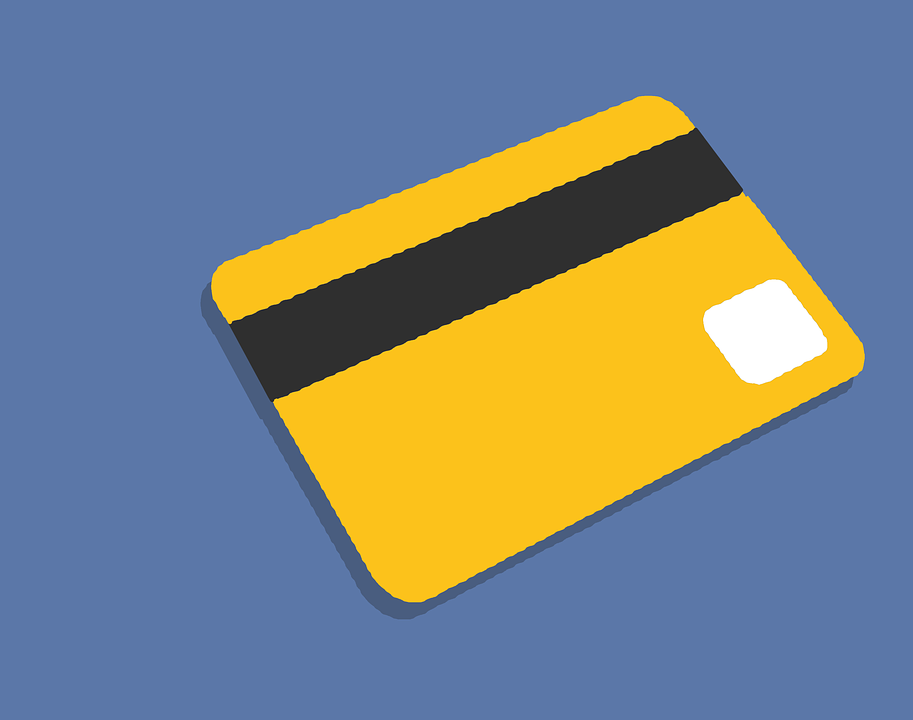“How can I build credit, if I can’t even get a secured credit card!”
This is what one of my Prosperity Partners lamented in one of our Q&As. If you’re trying to build or rebuild your credit, one of the most popular recommendations is a secured credit card. There’s a popular misconception that everyone who applies for a secured credit card will get approved. Once that ‘denied’ message pops up, however, feelings of dejection and credit-worthlessness will begin to set in.
Chin up ?. Just because a creditor offers a secured card, doesn’t mean they don’t have approval guidelines. If a credit card provider issues a card; they more than likely have conditions that you must meet in order to be approved for the card. These conditions can be based on income level, recent payment history reporting on your credit reports, or how recent your bankruptcy filing was.
There are also legal conditions that must be met. The U.S. Patriot Act requires creditors to have procedures in place to verify that the person applying for credit using your credentials is really you. If you have a fraud alert or credit freeze on your credit reports, that may be why your application was denied.
Another condition is the Credit CARD Act that requires credit card providers to verify that you have the financial means to repay any balance you incur. This is the area that will vary widely per credit card issuer, but the general idea is your income must be a certain dollar amount over your mortgage/rent.
So, if your secured credit card application was denied, here’s what to do.
What Is a Secured Credit Card?

A secured credit card is a type of credit card that you have to put a security deposit down for. The security deposit is placed in a bank account where it is held as collateral in the event you default due to nonpayment. The credit limit you’re approved for by the credit card issuer is often the same amount as your security deposit.
Example: Capital One has a secured credit card that requires a $200 deposit. You send them your $200 security deposit. Capital One will place your security deposit in a bank account, and issue you a credit card in the amount of $200. You will not spend your deposit. That is sitting in a bank account as collateral in case you make a charge(s) on your secured credit card and fail to pay it back. Thus, your credit limit is the amount of credit that Capital One has extended to you. Your credit card is secured by your $200 deposit.
Now that we’ve properly defined a secured credit card, here’s the first step to take if you were denied.
Review the Rejection Letter

Since you got a denial, you’re also entitled to a free copy of your credit report from the bureau that the credit card issuer used to review your credit history. This will allow you to check for any inaccuracies that may have prevented you from being approved.
Call Them

Calling is a great way to know if the reason your application was denied was because they weren’t able to access your full credit data due to a fraud alert being placed on your credit, or because you didn’t meet a specific guideline. Knowing is beautiful. If you decide to have your application processed for reconsideration, keep in mind that you may incur another hard inquiry.
Apply with Another Credit Card Provider

If their standards a bit high, then try a credit union. Some credit unions have credit builder loans and credit builder secured credit cards to get you back into the credit game. I’ve found that local credit unions that are more community based have more options for consumers who are rebuilding their credit.
Keep in mind that if your denial was due to lack of income – STOP. Do not apply for another credit card. Focus on increasing/securing income first.
No Credit Check Cards

I’ve used them both for years, and have never had a client get denied. They work exactly like any other secured card with one exception; they will NEVER turn in to an unsecured credit card. Let me state this again: They will NEVER upgrade into an unsecured credit card.
Most credit unions, banks, and credit card issuers’ secured credit cards will upgrade to an unsecured card after 12 months of on time payments, and return your security deposit. This will never happen with these cards.
However, it will afford you the opportunity to add positive credit to your credit reports, which in turn will give you the credit scores you need to qualify for traditional unsecured credit cards. This is why I call these type of cards ‘gateway credit cards’. They open the gates to better forms of credit with proper usage.
You can find a list of my favorite no-credit-check credit cards here.
Try A Merchant Account
Merchant accounts get a bad rep, but if you’re serious about establishing good credit, they do come in handy. Fingerhut is a popular merchant account. They have a credit program called Fresh Start. Their Fresh Start merchant account starts off as an installment loan that you’ll make payments on for 6 months (can pay off sooner, but CANNOT be paid off with your first payment). After successful payments are made, you are upgraded to a Fingerhut Credit Card.
Let me be clear; this is a gateway card as well; you will find their products are severely overpriced and the delivery fee is outrageous! However, Fingerhut accounts have built thousands of my student’s and client’s credit scores over the years when used properly. Basically, you find an affordable product, pray for a free delivery promotion, place your order using your Fresh Start Account, make timely payments, and in 3 months (when I suggest my clients pay it off), you have a new credit card reporting on your account! And guess what? It’s an unsecured credit card account! After my client’s get this card, I have them apply for Capital One after a couple months, and they are approved over 90% of the time.
Hutton Chase and My Jeweler’s Club are 2 other merchant account providers that I recommend to my clients.
Try a Credit Builder Loan
Credit builder loans are a great tool to use when building credit from scratch. When my clients are rebuilding, however, I like to first determine if they need an installment loan on their credit profile, or if we should work harder to obtain a revolving account. It’s important to do this because credit cards build our credit scores faster that installment loans. So, if my client already has a car or student loan accounts that are positively impacting their credit scores, another loan won’t be much help; a credit card will.
If, however, my client doesn’t have much credit at all, a credit builder loan would be great!
A credit builder loan can work one of two ways:
- You open and deposit money into a bank account and can borrow up to the total amount in your bank account. The bank account is typically an interest-bearing one, and you must maintain the amount of your loan in your bank account.
- You are approved for a credit builder loan, but no funds are released to you until you complete the payments on the loan first. For example; you’re approved for $500. You make payments prior to receiving the $500. Upon completion the $500 is sent to you, usually in the form of a check or direct deposit.
Credit unions are the most popular place to obtain a credit builder loan, however, Self Lender has been gaining popularity as well. I’ve found that Credit Unions usually report to about 2 credit bureaus; whereas Self Lender will report to all 3. The relationship that you establish with a good credit union is immeasurable, so I encourage you to consider both options.
Once You’ve Got It, Use it Wisely
I’ve mentioned ‘proper usage’ a few times, and thought it would be best to explain how to properly use your new card.
- Terms vary per credit card provider. Read your terms to use your card properly.
- Pay on time, every time.
- Keep balances below 10%; so, if the credit card limit is $200, spend less than $20 per month.
- Pay in full when you get the bill, no need to carry over a balance to the next billing cycle. This will help you to avoid being charged any interest.
Hope this helps!
If you have any questions, feel free to post them in my online community, Credit Makes $ense, and I’ll be more than happy to answer them for you.
If you need assistance in Rebuilding Your Credit, you can schedule your strategy session at consult.mnhfinancialservices.com; we’d love to help ?










One Response
Thanks